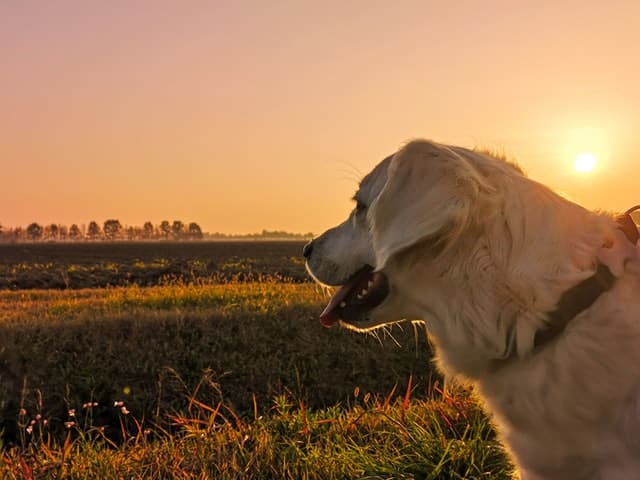One of the most frequent questions we all ask ourselves is: “What is after death?” The hope of the existence of a transcendent dimension collides with the idea of nothing. Yet it would also be worth asking, “Where do animals go when they die?”

One of the most difficult forms of suffering to accept and understand is the one experienced in the face of the death of a loved one, including, of course, our animals.
Yet, one of the saddest aspects is related to the fact that there are very few places in which this type of mourning can be processed, as well as the time allowed to those who have to recover from the loss of an animal is reduced. And this is particularly harmful to those people who find their pet the only source of true love .
What is an animal?
There is a lot of discussion going on about whether animals have a spirit or not. Undoubtedly these creatures share many aspects in common with man; for example, they may experience emotions similar to ours, such as happiness, sadness and pain.
In the same way, in addition to being conditioned by their instincts, each animal has a personal character that makes it unique, and which feeds on its experiences.
It is for these reasons that we speak of an animal spirit (very different from the religious perception that concerns the word spirit ). In fact, the same word is related to the term anima , which means animated or alive.
It happens more and more often to hear the stories of people who claim to have seen their animals after death , or to have felt their presence in the most significant places when they were alive. The belief that animals transcend, be it in spirit or in their essence, has therefore become widespread.
Death for the animals
For animals, death is a natural process , to the point that some have developed a degree of knowledge of it, experiencing grieving processes when a companion (both animal and human) dies.
However, having not developed a real awareness of death (with all the perspectives and meanings that men attribute to it), animals do not experience any kind of emotional suffering related to the end of life, resistance to death, fear of concepts. like hell or heaven, all of which can make this process extremely dramatic for the human race.
Although there are situations of affection towards their family, within their aura of unconsciousness about death, animals do not suffer any kind of attachment , which leads them to live in the present (they do not dwell on the past and it seems that they do not think about the future. ), making the transition between life and death much easier for them.
Some theories relating to the afterlife
- Some religions contemplate the possibility of animals reincarnating into other creatures based on their life experiences and their spiritual growth.
- Before reincarnating again in another animal of the same or different species, the animals go through an integrative process of the experiences lived when they were alive.
- Animals that endure severe illness for long periods of time are believed to be waiting for their owner to mature emotionally and be ready to “let go”.
- The physical body of the animal is transformed into an energy body, which is released at the time of death.
- The animals return to join with the divine energies of nature, where they return to be one with the generating entity of life.
- According to the most modern visions of the branches of Judeo-Christian beliefs, the animals that have accompanied us in life remain in heaven waiting for us to reach them.
- They await us in spaces where they can play, enjoying multiple experiences in their new astral form.
- If the human does not positively process the death of his animal, it cannot ascend to the upper plane and will find himself forced to wander through dark space trying in vain to calm his master’s anxiety.






